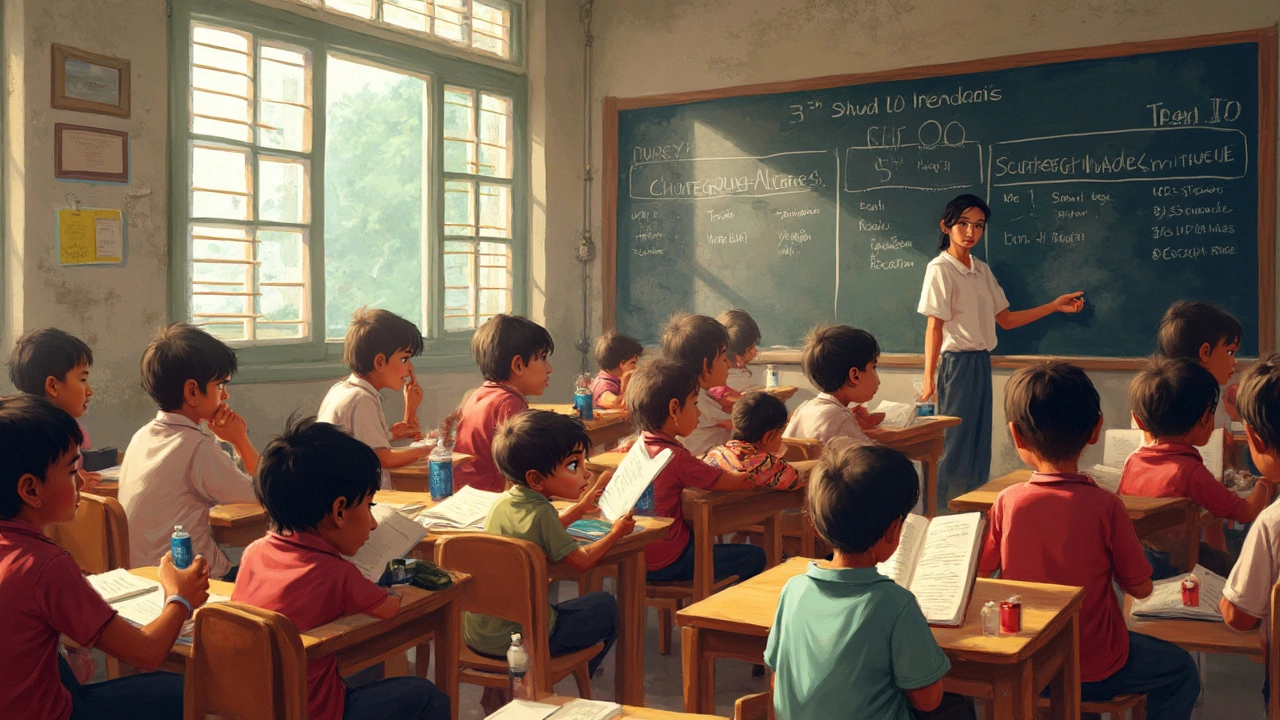CBSE: What It Is, How It Shapes Indian Education, and Why It Matters for Tech Learners
When you hear CBSE, the Central Board of Secondary Education, India’s largest school board that oversees curriculum and exams for over 20,000 schools. Also known as Central Board of Secondary Education, it controls what millions of Indian students study from grade 1 through 12—especially in core subjects like math, science, and English. If you’re a student in India, chances are you’re in a CBSE school. But CBSE isn’t just about textbooks and board exams. It’s the foundation many students build their future on—whether they become web developers, engineers, or entrepreneurs.
What makes CBSE different? It’s standardized. That means a student in Delhi learns the same physics chapter as one in Kerala. This uniformity helps when applying to colleges across India, especially for competitive exams like JEE and NEET. But here’s the catch: CBSE focuses heavily on memorization and theory. Real-world skills—like building a website, debugging code, or using data to solve problems—are rarely part of the curriculum. That’s why so many CBSE students end up learning web development on their own, through YouTube, free courses, or bootcamps. And that’s exactly why posts on this page matter. They bridge the gap between what CBSE teaches and what the digital world actually needs.
CBSE students who want to break into tech often compare their education to systems like the US curriculum. The US system gives more room for projects, creativity, and electives. CBSE doesn’t. But CBSE builds discipline. It trains you to handle pressure, stick to a schedule, and master fundamentals—skills that help when you’re learning JavaScript or React later. Many successful developers in India started with CBSE, then taught themselves to code. You don’t need a perfect school system to become a developer. You just need the right resources and the drive to learn outside class.
Some of the posts here explore how CBSE students fare when studying abroad, what skills they’re missing, and how to fill those gaps fast. Others break down how web development skills can be learned even if your school doesn’t teach them. There’s no magic formula. But there is a path—and it starts with understanding where you are. CBSE might not be designed for the digital age, but you don’t have to wait for it to change. You can learn what you need, right now. Below, you’ll find real stories, practical guides, and clear advice from people who’ve walked this path.
Is CBSE Only in India? Exploring CBSE’s Global Reach
Find out if CBSE is limited to India. Learn about its worldwide schools, affiliation process, curriculum consistency, and how it compares to other international boards.
Which Board Is the Toughest in India? A Practical Look at CBSE and Beyond
Curious about which school board is considered the toughest in India? This article compares CBSE with other major boards, highlighting their unique challenges and what it actually means for students. You'll find real-life examples, direct tips for tackling tough syllabuses, and facts that students and parents should know before choosing a board. Get straight answers on what really sets each board apart. The goal—help you decide what's best, not what sounds hardest.

